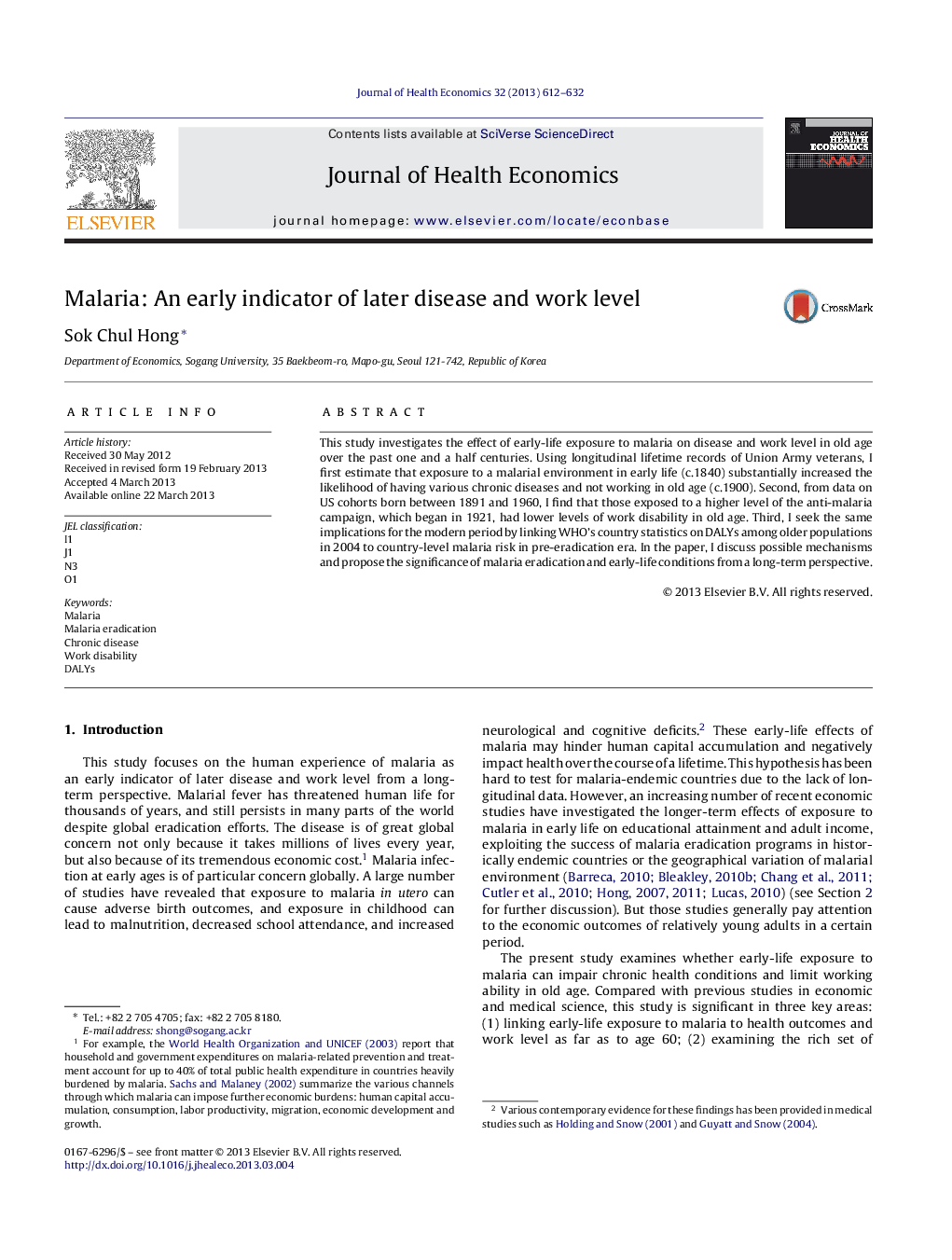| Article ID | Journal | Published Year | Pages | File Type |
|---|---|---|---|---|
| 10476486 | Journal of Health Economics | 2013 | 21 Pages |
Abstract
This study investigates the effect of early-life exposure to malaria on disease and work level in old age over the past one and a half centuries. Using longitudinal lifetime records of Union Army veterans, I first estimate that exposure to a malarial environment in early life (c.1840) substantially increased the likelihood of having various chronic diseases and not working in old age (c.1900). Second, from data on US cohorts born between 1891 and 1960, I find that those exposed to a higher level of the anti-malaria campaign, which began in 1921, had lower levels of work disability in old age. Third, I seek the same implications for the modern period by linking WHO's country statistics on DALYs among older populations in 2004 to country-level malaria risk in pre-eradication era. In the paper, I discuss possible mechanisms and propose the significance of malaria eradication and early-life conditions from a long-term perspective.
Related Topics
Health Sciences
Medicine and Dentistry
Public Health and Health Policy
Authors
Sok Chul Hong,
